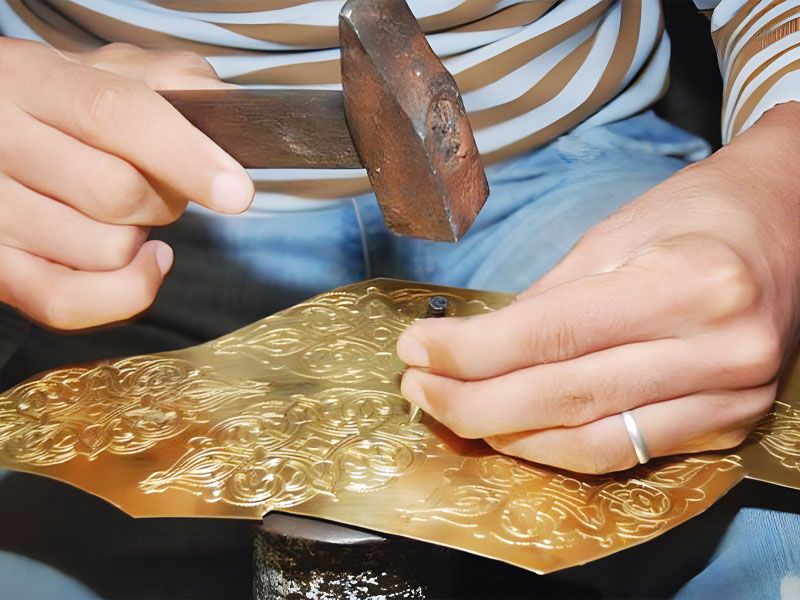Modernisation of traditional craftsmanship: Monitoring some aspects of change (The example of copper-work in the Moroccan city of Fez)
Issue 39

By Yousif Buwatawn, PhD candidate in Sociology, Hassan II University of Casablanca, Morocco
In this study, the researcher attempted to track the various changes that affected traditional ways of working with copper. He also tried to identify the most important socio-economic and aesthetic factors that led to the modernisation of traditional craftsmanship and to the loss of copper-work’s characteristics and traditional character.
A field study revealed that copper-work was affected by capitalist concepts such as freedom of production and new principles such as making a profit in the simplest and cheapest way, because imported foreign products were distinguished by their lower price and quality. A group of copper craftsmen bought modern machines and introduced them into the production cycle.
In response to this development, we studied the changes that impacted traditional copper-work techniques and tried to identify the challenges faced by traditional artisans.
Modernisation and mechanisation have robbed the craft of its traditional character and its inherited cultural and social characteristics. The transformations and profound changes affected the world in general and Morocco in particular, because the latter is “a transitional society witnessing the erosion of its traditional structure with the emergence of modernisation at all levels". These changes also affected copper-work.
Copper-work should not depend solely on traditional techniques.







































































